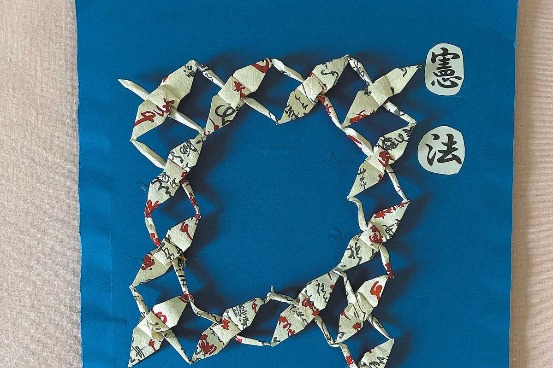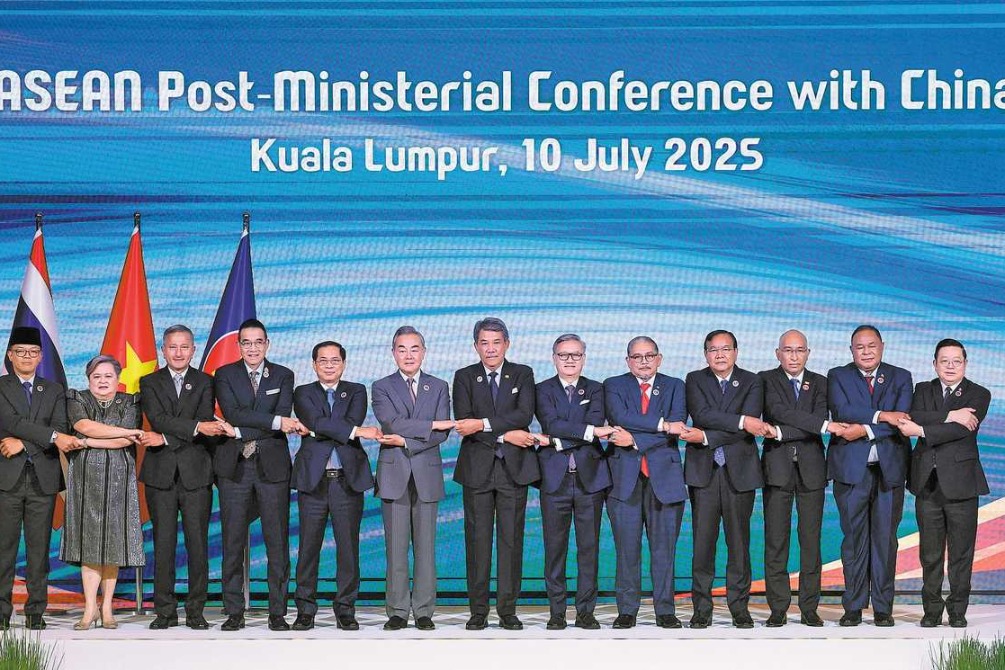Seminar highlights advances on rights
Former United Nations official says agenda has been politicized by West

Alfred de Zayas, a former senior human rights expert at the United Nations, said that naming and shaming has been a cancer eating up the UN Human Rights Council for decades.
Now a professor of international law at the Geneva School of Diplomacy, De Zayas said that instead of cooperating, having a culture of listening to the opinions of others, advisory service and technical assistance, the entire system has been weaponized to knock out geopolitical rivals.
He was talking about how donors to the UN Human Rights Council, or the collective West, have been wielding enormous influence in the UN human rights system to push for their agenda.
"Unfortunately the human rights system has always been politicized. At present, it is more politicized than ever. At present, it is more in the service of Washington and Brussels than in the service of humanity," he said.
De Zayas, author of the 2023 book The Human Rights Industry, said there is an information war going on against the China-proposed Belt and Road Initiative and Chinese companies by portraying China as the "bad guys".
"Since you are depicted as the 'bad guys', it's legitimate to do anything against you," he said, adding China is the victim of defamation.
He said when he grew up in Chicago, he was taught to hate Germans, Russians and Chinese.
"It took me years, many years, to free myself of the kind of indoctrination that I got," said De Zayas, who has dual citizenship of the US and Switzerland.
He said that his scholarship experience in Germany and his working experience at the UN with colleagues from Russia, China and other countries helped him get rid of the influence of this indoctrination.
"But the fact that I freed myself from brainwashing does not mean that the great masses in the United States, and in France, and in the United Kingdom, and in Germany are not fools of prejudices against China," he said.
He was speaking at a seminar in Geneva on Thursday on the right to education of ethnic groups during China's modernization, focusing on the good practices in the Xizang autonomous region and the Xinjiang Uygur autonomous region.
At the meeting, sponsored by the China Society for Human Rights Studies, a group of Chinese scholars and experts on human rights, education and ethnic group studies shared their thoughts and research reports on the subject.
Wang Yanwen, deputy secretary-general of the society, said that China, with 56 ethnic groups, must ensure that the education of ethnic groups is not influenced or interfered with by external forces, but is better adapted to and integrated into the development of modernization to enhance their sense of fulfillment and happiness and reinforce their sense of being masters of the country.
"This is an important agenda in the Chinese modernization process and relevant to the global modernization process, as we all share the same sky," she said.
The seminar took place while the 55th session of the UN Human Rights Council was being held in Geneva.
Tuersun Aibai, an associate professor at the School of Journalism and Communication at Xinjiang University, shared his personal and family story in pursuing education in China.
He went to Shanghai to attend Fudan University. Later, he pursued graduate studies at Tsinghua University in Beijing, obtaining a master's and then doctoral degree, thanks to national plans to assist ethnic groups in education.
"There are plenty of cases like this around me. Tens of thousands of students in Xinjiang have received higher education and are enjoying happy and decent lives thanks to the government's preferential policies toward ethnic groups," he said.































